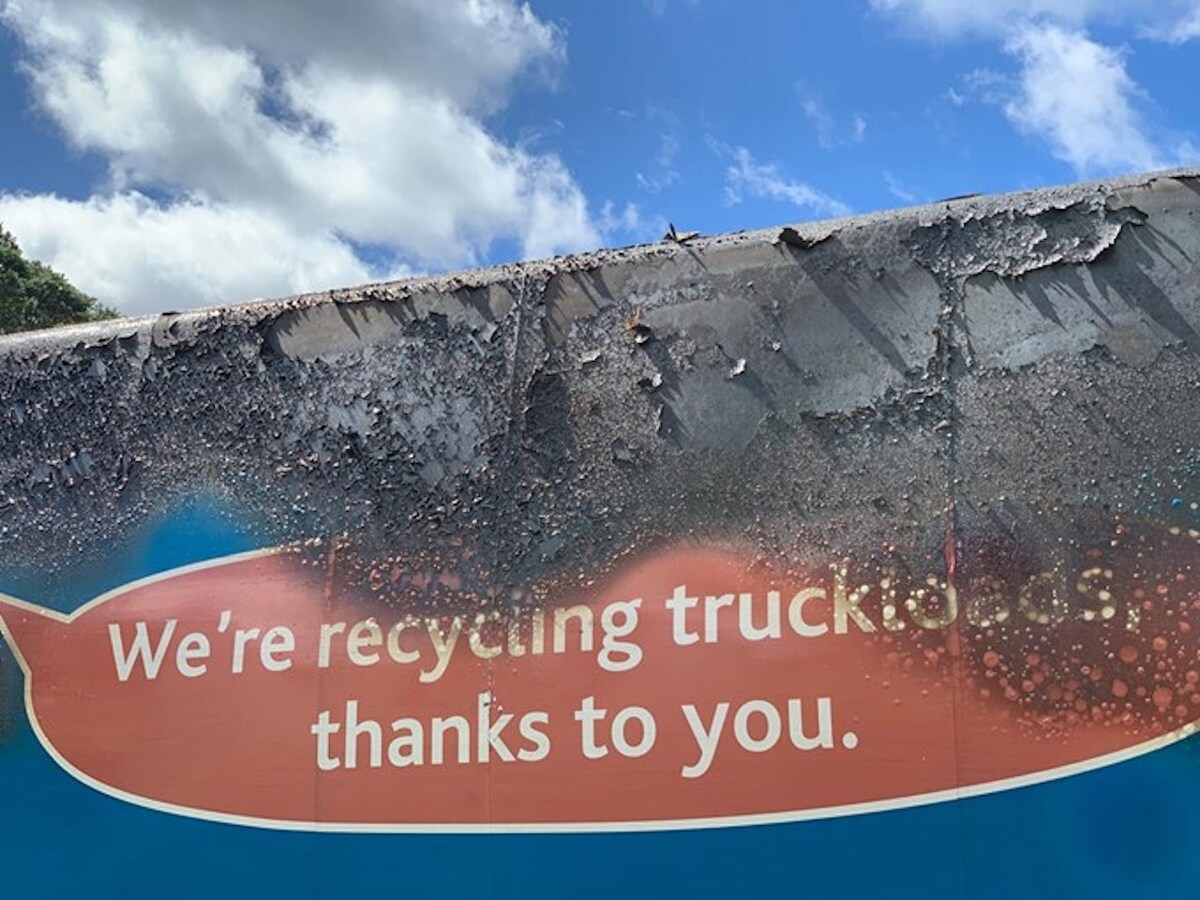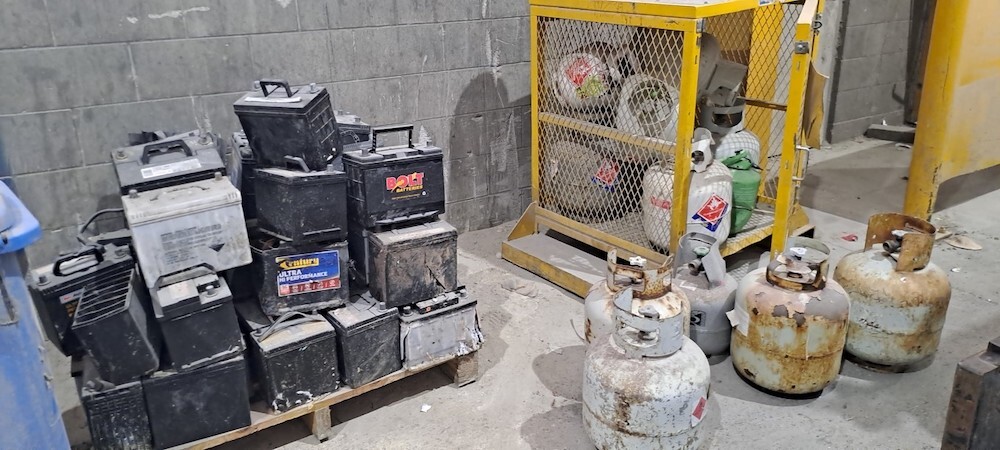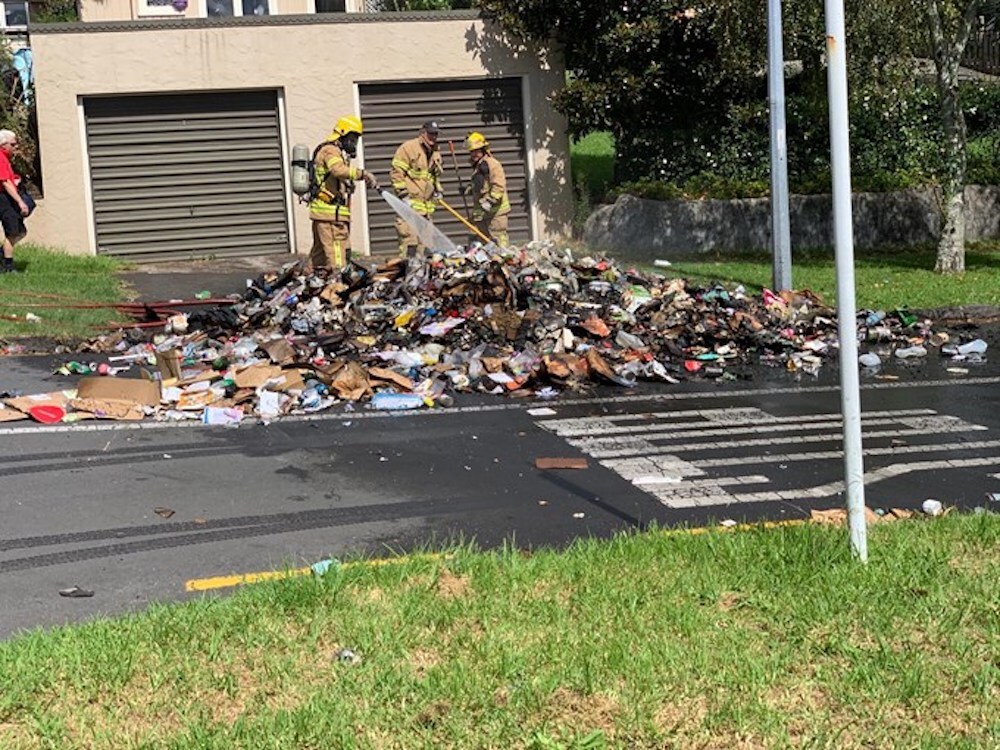Rubbish Truck Fires Prompt Safety Warnings
Staff Reporter
29 January 2025, 10:16 PM
 Smoke Rises From Damaged Lithium-Ion Batteries
Smoke Rises From Damaged Lithium-Ion BatteriesThe new year has brought a fiery challenge for Auckland’s waste collection services, with five rubbish and recycling truck fires reported in the first two weeks of January.
The incidents are largely attributed to an increasing number of battery-powered devices and batteries being placed in household bins.
Lithium-ion batteries, commonly found in electronics, can ignite if damaged or crushed during the waste collection process.
In December alone, nearly 600 laptops and over 300 12-volt batteries were discovered at Auckland’s regional recycling facility.

These items accounted for almost a third of the total number of laptops and 12V batteries recorded at the site since June 2024.
The facility, which processes all kerbside recycling for the region, experiences one or two small fires weekly, often linked to lithium-ion batteries.
Justine Haves, General Manager of Waste Solutions, emphasised the importance of proper disposal. “Electronic devices and batteries can be recycled in most cases, but they contain hazardous substances and require specialist handling,” she said.
“We encourage people to use takeback and drop-off schemes run by retailers and local community recycling centres.”
Lithium-ion batteries pose a significant fire risk due to their flammable electrolyte and stored energy, which can lead to thermal runaway—a rapid and uncontrolled release of heat energy.

This process emits toxic gases and can reignite even after being extinguished.
To address the issue, Auckland Council’s Waste Solutions team is developing a new testing programme to provide early warnings to drivers and improve fire suppression within trucks.
This initiative aims to reduce environmental contamination and enhance safety for Fire and Emergency responders.
Currently, drivers who detect smoke or fire must notify their supervisor, contact Fire and Emergency, and find a safe location to empty their load.
Batteries are not the only hazardous items found in bins.
In January, recycling truck drivers discovered a half-full 40kg LPG bottle and a partially filled petrol jerry can.
Over the past six months, more than 300 LPG bottles and gas canisters have been recorded at the recycling facility.
How to Dispose of Hazardous Materials Safely:
- Mitre 10 and Bunnings offer battery drop-off schemes. Check their websites for details.
- Retailers like Noel Leeming provide take-back schemes for used battery-powered devices, including items they did not sell.
- Empty gas bottles and canisters can be taken to community recycling centres or MataGas outlets. Some camping stores sell tools to fully empty canisters before disposal.
- Visit aucklandcouncil.govt.nz/whereitgoes for specific recycling options.
Have a News story to share?
Contact [email protected]




